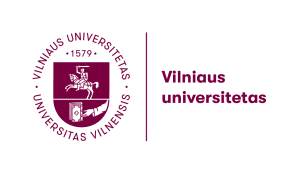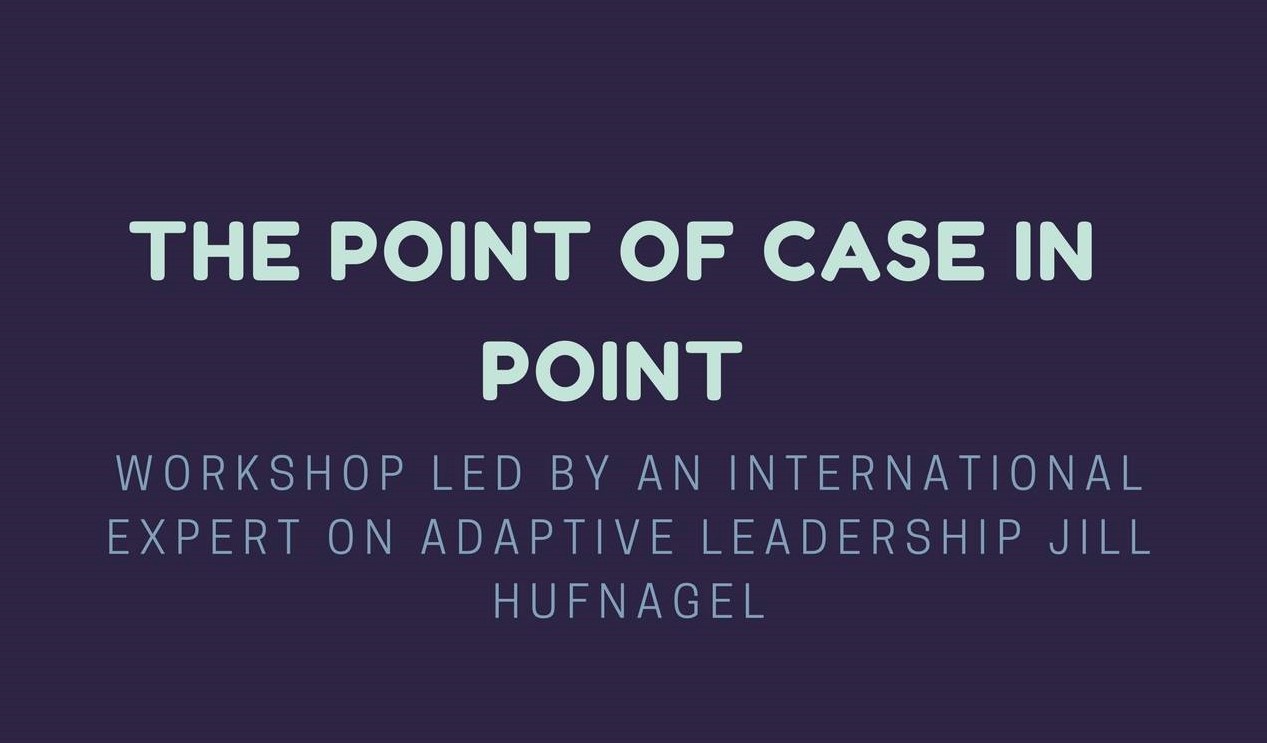Case-in-Point (CIP) is a teaching method, a methodology pioneered by Ron Heifetz and his Harvard Kennedy School colleagues. It uses a group’s own interactions to LEARN Leadership concepts. The use of this method makes it possible for participants to more fully experience the challenge of Leading. Rather than lecturing, the teacher calls out observations, questions, interpretations and takes provocative actions to help the group UNDERSTAND the LEADERSHIP CONCEPTS being illustrated in the room.
According to Jill Hufnagel who will lead the CIP workshop in Vilnius in May 2018, “Case-in-Point is a framework that connects the dynamics in the moment with key leadership concepts, in effect breathing life into theory through the unfolding narrative in the room. Positing that the challenges endemic to engaging in acts of leadership mirror those within the learning community, the method seizes the opportunities alive in the classroom to both discern and dissect vital leadership thinking and strategy“.
At the same time, “Case-in-Point also asks more of facilitators: more willingness to think aloud, to change course, to remain open to what is alive in the room not printed on the schedule. Yet with this promising “more” comes another, rather daunting set of “more”: more possibilities of not knowing which direction to head, more chances of appearing incompetent, more moments that feel like failure. In this way, the efficacy of the session is often a direct result of the facilitator’s willingness to model those very dicey leadership capacities many of us avoid at all costs.”
Who the CIP workshop is for?
The CIP workshop at Vilnius University TSPMI is intended as “train-the-trainer” experiential workshop for lecturers and facilitators who work with groups on Leadership concepts and skills.
When the CIP workshop takes place?
The CIP workshop at Vilnius University TSPMI will take place on 24-27 may, 2018
What is the structure of the CIP workshop?
The workshop will take 4 (four) days is such structure: 1 day CIP workshop + 1 day AL conference + 2 day CIP workshop. The AL conference will be dedicated to the reform-making topic: „When the reforms do (not) take place?“.
What skills does the CIP workshop help to develop?
To become effective teachers of Leadership, the facilitators must observe the system as it is revealing itself, generate multiple interpretations of the data in the room, and then craft interventions that help the system both see itself and engage more purposefully. This ability to reflect in the midst of action demands a discipline and clarity that is surely humbling and then some. The CIP workshop will provide the opportunity to practice that in a lower-risk environment. Basketball players prepare themselves for the intensity of games through hours of off-season training and practice. CIP provides its own “practice field” for the lecturers of Leadership.
Why the CIP workshop includes a conference?
The one-day conference event, dedicated to the reform-making topic: „When the reforms do (not) take place?“ aims to examine a reform that is relevant to Lithuania through the lenses of Adaptive Leadership, in this manner bringing together entrepreneurs, politicians and civic leaders who are interested to this topic. The conference will introduce the concept of Adaptive Leadership to general public and to provide material for the research conducted by the Adaptive Leadership Centre (ALC) of VU. The ALC intends to publish a policy paper / recommendations on leadership for reform-making. The participants of the conference will be gain in deeper knowledge of Adaptive Leadership concepts and their applicability to the real life civic challenges and policy reforms.
How does the CIP workshop work?
Through the method, participants will become more skilled at seeing how groups function as “systems,” an understanding important for addressing challenges within their own communities.
What is the experience at CIP workshop like?
Case-in-Point can be quite challenging for participants initially. The facilitator will not be lecturing the group, providing the answers or even doing most of the talking. Because participants share the responsibility of leading the discussion with the facilitator, they play an important role in helping direct the group’s learning. It is also common for facilitators to ask provocative questions and challenge the interpretations being made by participants. It is common to feel confused, frustrated or even upset at times during a workshop taught using Case-in-Point. Feeling disoriented is a natural part of the learning process as we wrestle with incorporating new ideas into our lives.
For any inquiries or questions regarding the workshop, please contact:
Ieva Giedraityte
ieva.giedraityte@tspmi.vu.lt
Partners of the event:

![]()









